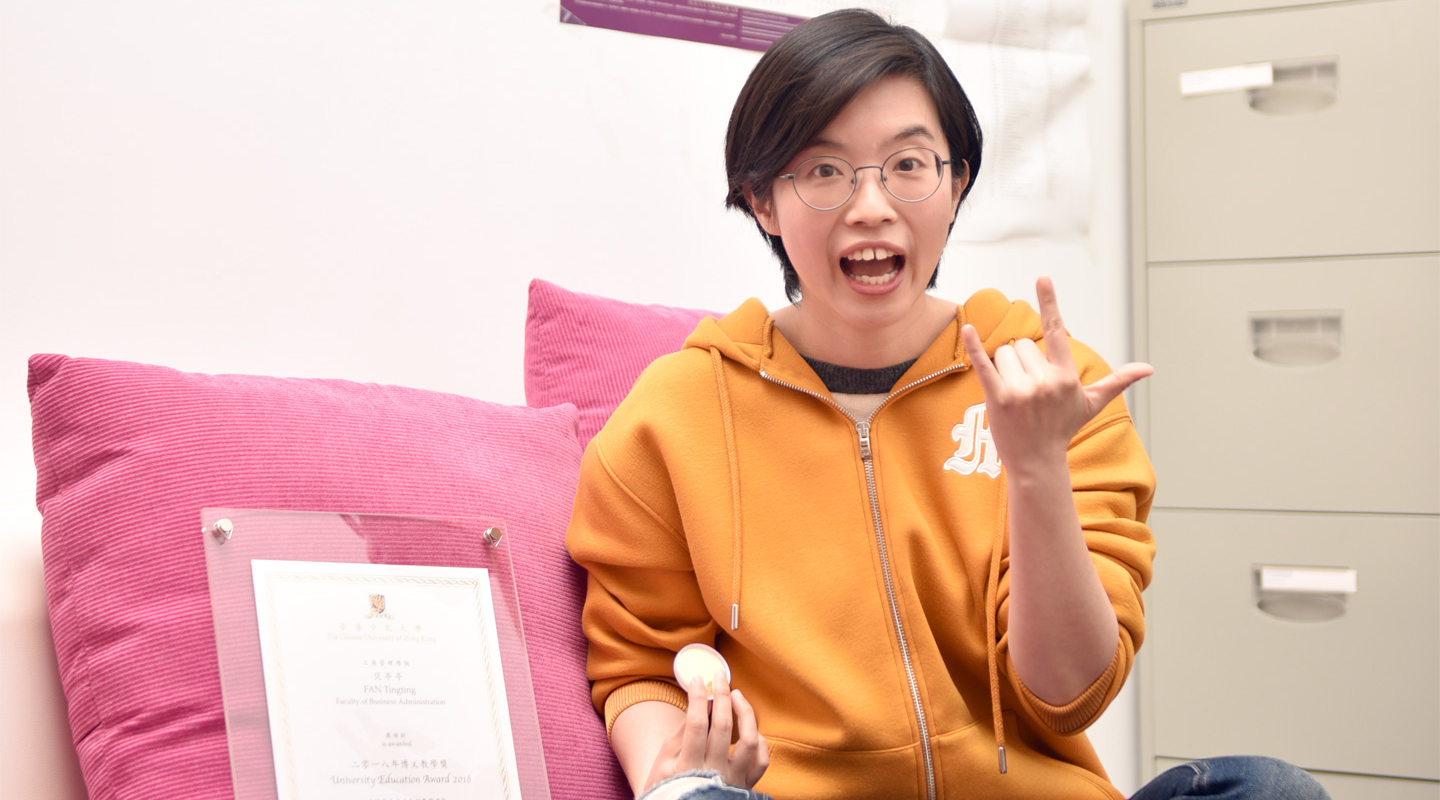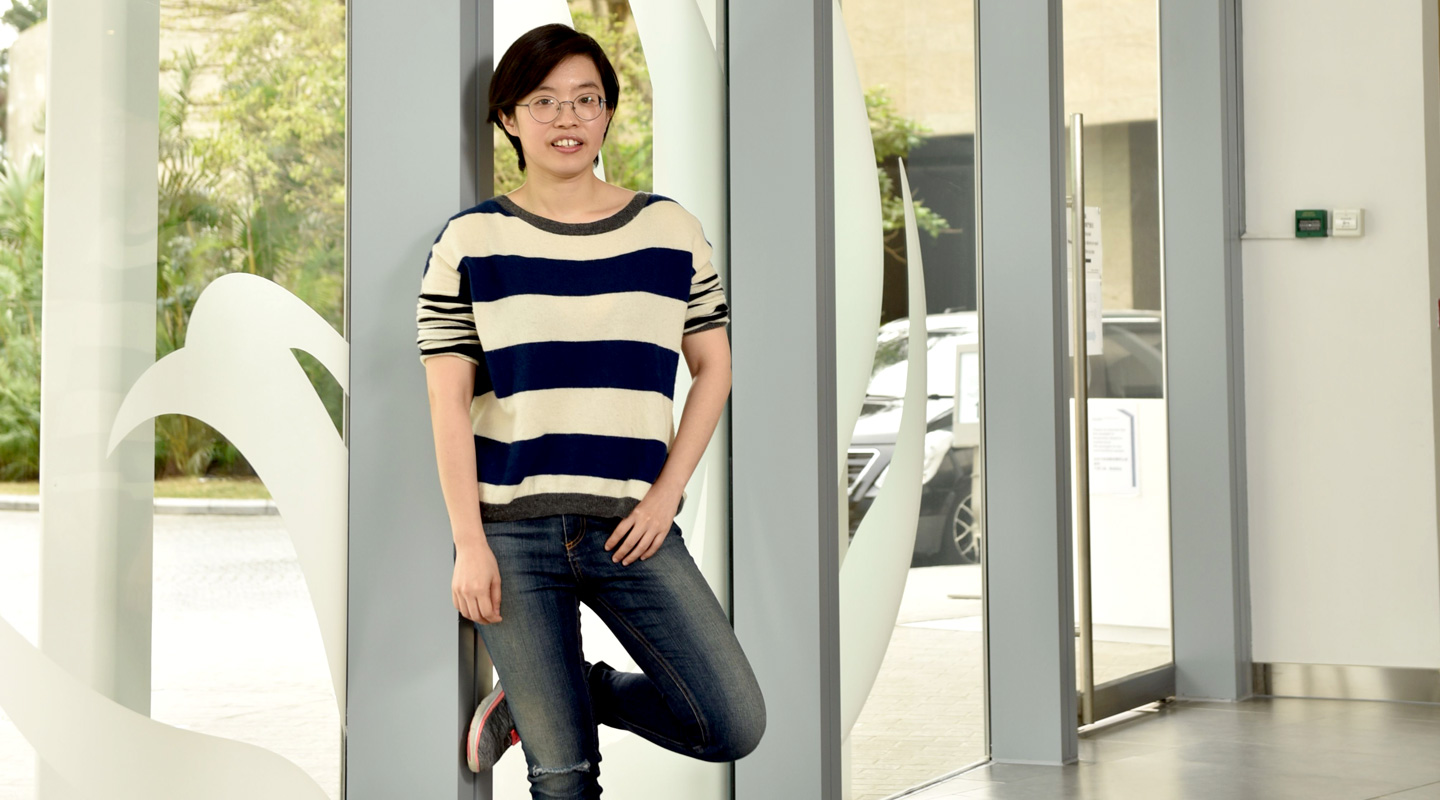Prof. Fan Tingting on Being Interesting

Prof. Fan Tingting
The winner of the University Education Award 2018 talked to CUHK Newsletter about the joy of teaching, her role models, and how she transformed her life from a bore to a blast.
How do you feel about winning the University Education Award—one of the highest accolades for teaching excellence in CUHK—only four years after graduation?
The award is a great encouragement not just to me but to all the research-oriented young academics who might not believe they could balance teaching and research well. It proves that teaching can be fun and enjoyable and is worth the effort.
You received exceptionally high ratings from your students. What’s your secret?
Being an interesting person. Whenever I watch a movie, read a book or go shopping, I am constantly on the lookout for interesting things to share with my students from the standpoint of marketing. They would be excited and respond more actively if I bring forth topics not found in any marketing textbook, such as how drug dealers ship cocaine from Columbia to the US and how the divorce of Amazon’s CEO might affect the company.
What do you think your students appreciate the most about you?
My genuine respect for them. I always ask for their thoughts and put a high premium on their opinions. In my class there is no right or wrong answer. Any answer is deemed good as long as the underlying logic is sound.
Digital marketing is one of your strong suits. With the digital world changing rapidly, how do you ensure the relevancy of what you teach?
The theories I teach may remain the same, but the examples I give are in sync with what is happening out there. I am an avid reader of The Wall Street Journal, Time and The Economist. Many of the cases studied in my class are based on their in-depth reports on current events and emerging trends.
Which research you’ve done so far has taken you by surprise?
My research into crowdfunding platforms has a counter-intuitive finding: a potential funder is more likely to contribute to a crowdfunding campaign when the majority of early contributions are relatively small amounts, e.g., US$1. If the majority of early funders contribute larger amounts, e.g., US$100, potential funders are likely to infer that they came from family and friends and so are less likely to chip in. I called it ‘The Small-Predicts-Large Effect’. Entrepreneurs can do well to remember this when devising fundraising strategies.
As far as teaching is concerned, who is your role model?
I look up to my PhD adviser and very good friend Prof. Peter N. Golder. I’ve known him for 12 years since I was studying at Peking University. He witnessed my wedding at the New York City Hall, walked me to the PhD graduation ceremony, and visited my small hometown in Fujian Province with his family. It is he who showed me how to be a caring and inspiring teacher, how to stay positive during tough times, and how to be grateful for everything.
What kind of a student were you?
I was a typical nerd in high school. Coming first in exams was all I ever wanted. My best friend Dong Yuntao, whom I met at Peking University and who is now a professor at the University of Connecticut, inspired me to see that life can still be wonderful without top scores, if we have an interesting soul. I wish I had learned that much earlier.

You always look joyful and energetic. Any tips for staying physically and mentally fit?
Again, be an interesting person. I am neither smart nor pretty, but I can be interesting. There is so much fun to be had in the world. I must stay happy and healthy to bring along my friends and family on this wonderful trip.
Christine N.
This article was originally published in No. 533, Newsletter in Mar 2019.

